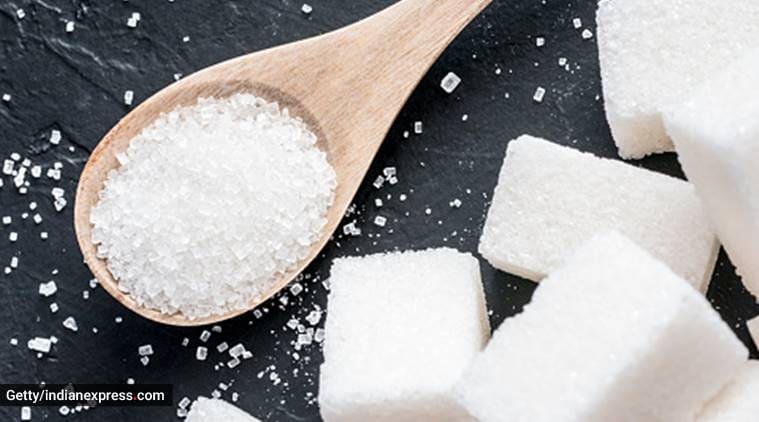 Excess consumption of sugar can be harmful for your health. (Source: Getty images)
Excess consumption of sugar can be harmful for your health. (Source: Getty images)
Consumption of excess sugar is linked with larger fat deposits around the heart and the abdomen, as per the findings of a study published recently in the European Journal of Preventive Cardiology.
The six countries with the highest sales of sugary drinks per capita are Chile, Mexico, Argentina, Peru, US, and Saudi Arabia. The demand for sugar is expected to increase in Asia, Africa, and Russia.
In India, the mean intake of added sugar was found to be the highest in Mumbai and the least in Hyderabad, according to a recent survey by Indian Council of Medical Research (ICMR) and National Institute of Nutrition (NIN), sponsored by the International Life Sciences Institute – India (ILSI-India).
“When we consume too much sugar the excess is converted to fat and stored,” study author So Yun Yi, PhD student at the University of Minnesota School of Public Health, was quoted as saying by Science Daily. “This fat tissue located around the heart and in the abdomen releases chemicals into the body which can be harmful to health. Our results support limiting added sugar intake.”
For the study, both sugar-sweetened beverages, and sugar added to foods and beverages for sweetness were examined.
Read| Even naturally sweet drinks may increase diabetes risk: Study
Food and beverage intakes were measured three times over a 20-year period (1985 to 2005). And after 25 years (completed in 2010), computed tomography (CT) scans of the chest and abdomen were performed to measure fat volumes in the abdomen and around the heart.
The researchers found that sugar intake over 20 years was related to fat volumes later in life. Excess intake of both sugar-sweetened beverages and added sugar were related to storage of fat around organs.
Read| From chocolates to yogurt: Does ‘sugar-free’ mean ‘no sugar’
“We know that fat deposits are connected with higher risks of heart disease and diabetes,” study author Dr Lyn Steffen, University of Minnesota School of Public Health, was quoted as saying.
“Have water instead of sugary drinks and choose healthier snacks over foods rich in added sugar like cakes. Read food labels to check the amount of added sugar in what you are buying. Look for ingredients like syrups, glucose, fructose, sucrose, and maltose. Being more aware of hidden sugar will help you cut back,” the author advised.